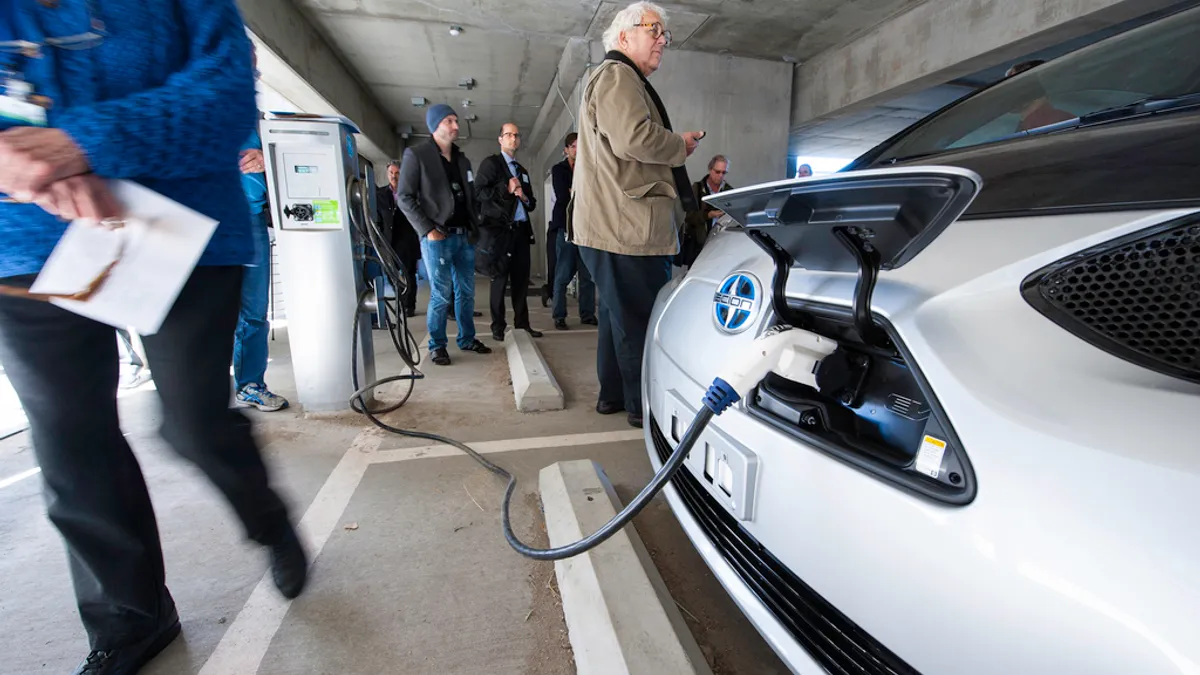Dive Brief:
- Lawmakers in Minnesota's House and Senate have introduced bills that would impose new fees on drivers of electric vehicles, from $75 to $85 annually to make up for lost gas tax revenues.
- While EV advocates argue EV drivers already pay more than their share in state taxes and fees, Minnesota lawmakers say they want to replace gas tax fees before sales take off in the state.
- More than a dozen states have now proposed legislation this year to add fees to electric vehicle ownership.
Dive Insight:
Minnesota had less than 1,000 electric vehicles on its roads last year, according to the Star Tribune. But Rep. Pat Garofalo (R), who introduced the House version of the bill, said the fees would be harder to institute once sales begin to grow.
And it's worth noting, the Tribune reported, that Garofalo is a Tesla driver. "I have an electric car, so I understand the consequences of it," he told the newspaper.
Other EV drivers, however, point to analysis from the Great Plains Institute showing that they already pay more in general state taxes and fees on their vehicles than gas car drivers. Minnesota's gas tax is 28.5 cents per gallon, but covers less than half of bridge and road maintenance.
The issue of fees on electric vehicles has been coming up more frequently as their adoption spreads. Because they use no gas, drivers don't pay the gas taxes which help fund highway upkeep. About 10 states already have the fees, and others (Indiana, South Carolina, Kansas, Tennessee, New Hampshire, and Montana) proposed new fees earlier this year.
Wyoming, Colorado, Georgia, Washington and others all have fees ranging from $50 to $300 per driver per year. The Sierra Club says Georgia—which has an EV adoption rate of about 2.2 per 1,000 vehicles— previously offered a $5,000 tax credit but has replaced that with a $200 annual fee. According to the group, EV sales subsequently plummeted 80%.
In California, drivers have adopted EVs at a rate of about 4.7 per 1,000 vehicles, while all the West Coast states, plus Georgia, have adoption rates over 2.0 per 1,000. Manufacturers are building new longer-range and more affordable vehicles, possibly helping to spur adoption. The Tesla Model 3 and Chevrolet Bolt are set to go into production this year, starting at just above $35,000.














